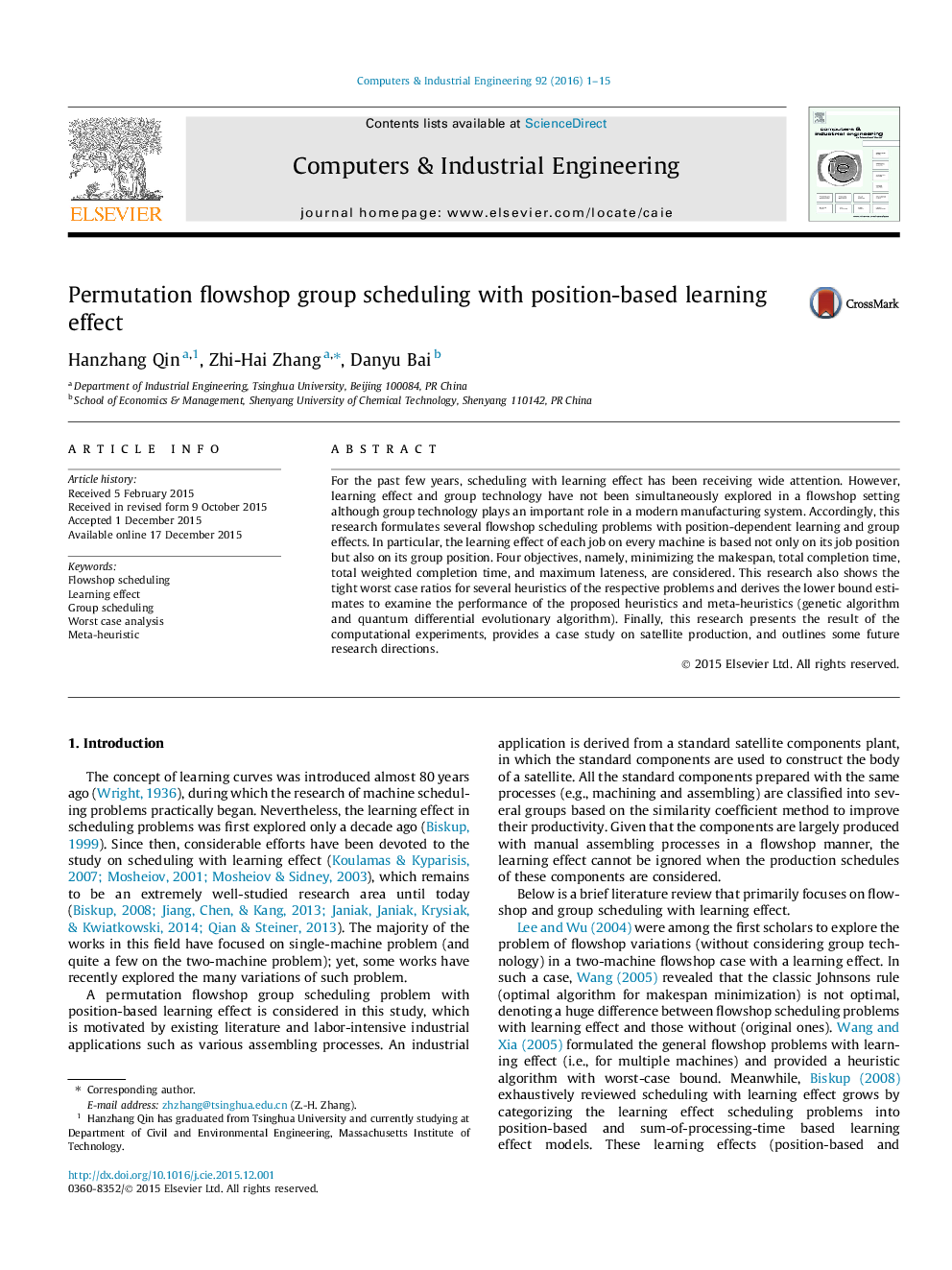| Article ID | Journal | Published Year | Pages | File Type |
|---|---|---|---|---|
| 1133292 | Computers & Industrial Engineering | 2016 | 15 Pages |
•A permutation flowshop group scheduling with position-based learning effect is studied.•Worst-case analysis for four given heuristics is conducted.•Two polynomially-solvable cases of the problem are presented.•Two well-known evolutionary meta-heuristics are developed and the lower bounds of the problem are derived.•A real application is presented.
For the past few years, scheduling with learning effect has been receiving wide attention. However, learning effect and group technology have not been simultaneously explored in a flowshop setting although group technology plays an important role in a modern manufacturing system. Accordingly, this research formulates several flowshop scheduling problems with position-dependent learning and group effects. In particular, the learning effect of each job on every machine is based not only on its job position but also on its group position. Four objectives, namely, minimizing the makespan, total completion time, total weighted completion time, and maximum lateness, are considered. This research also shows the tight worst case ratios for several heuristics of the respective problems and derives the lower bound estimates to examine the performance of the proposed heuristics and meta-heuristics (genetic algorithm and quantum differential evolutionary algorithm). Finally, this research presents the result of the computational experiments, provides a case study on satellite production, and outlines some future research directions.
